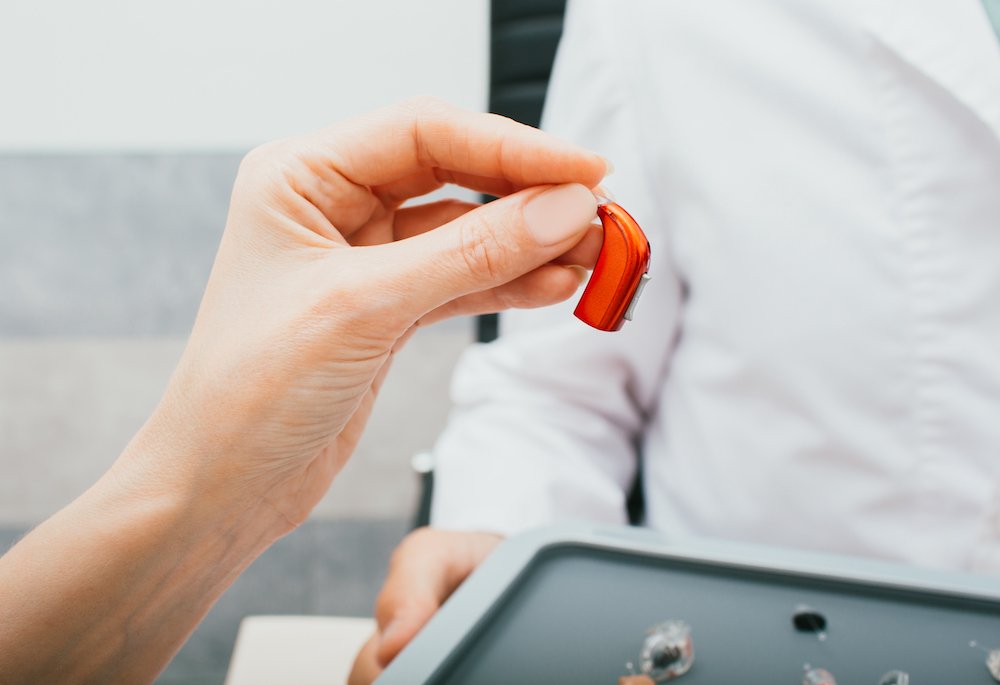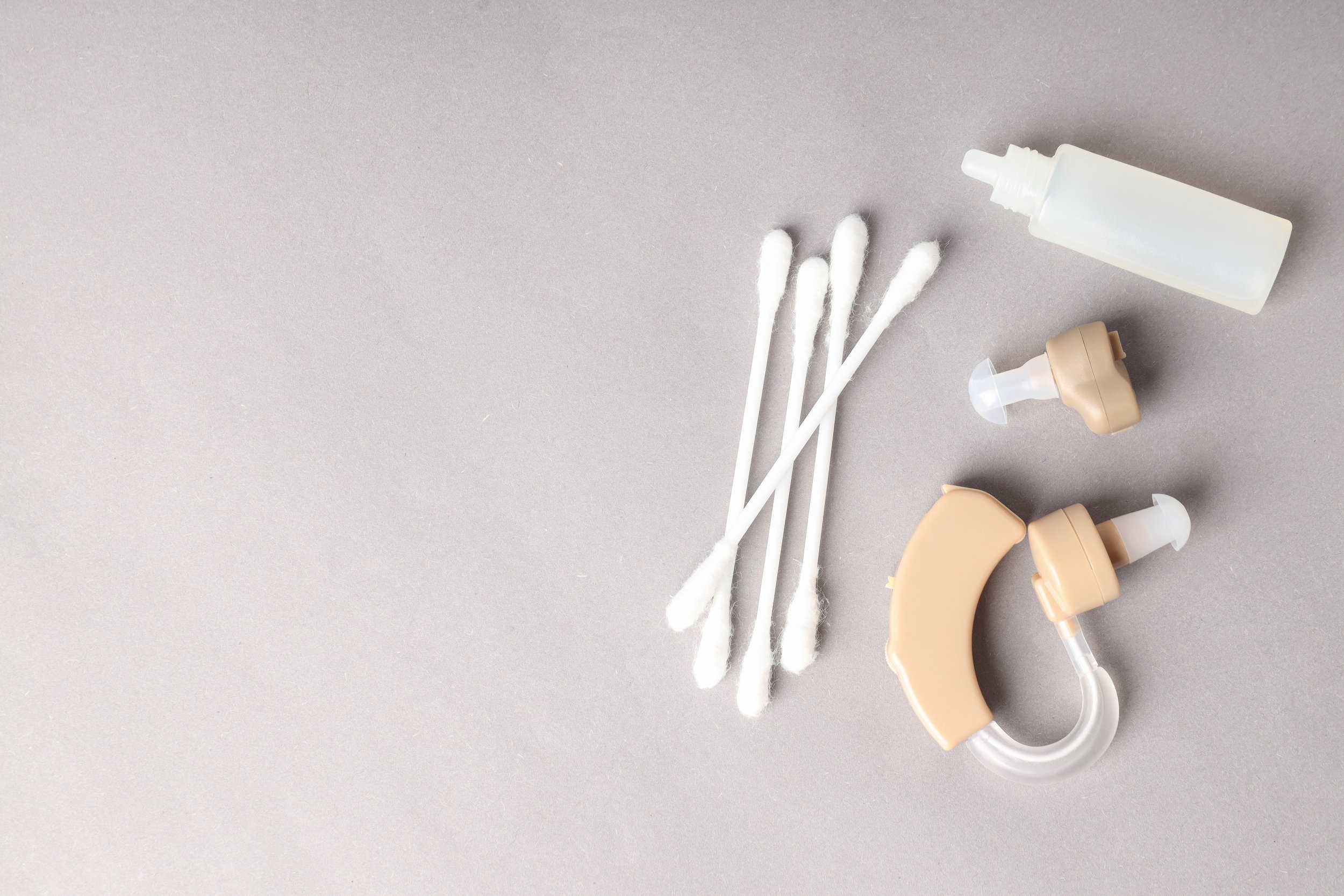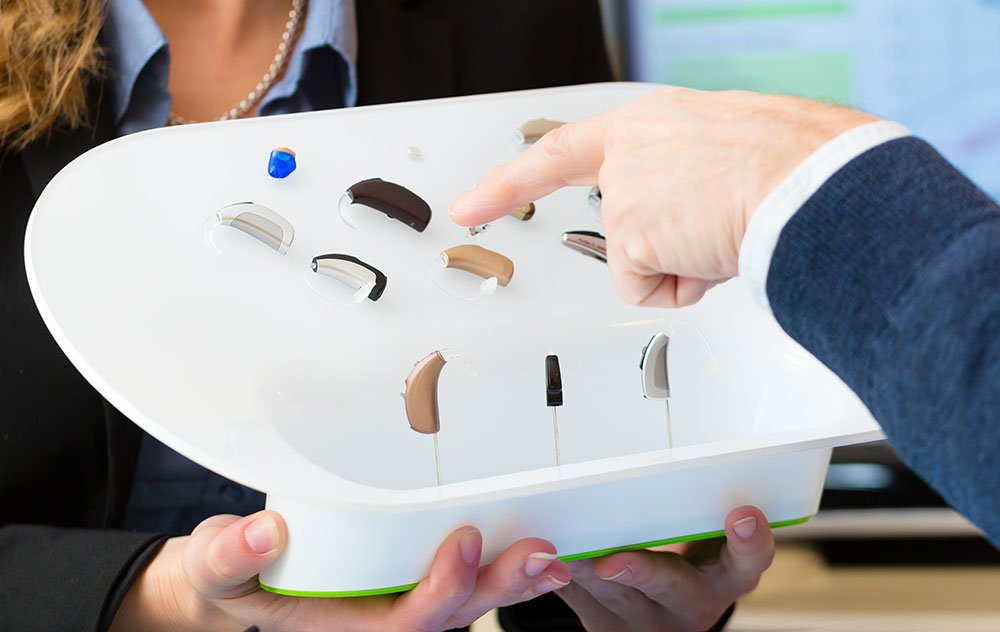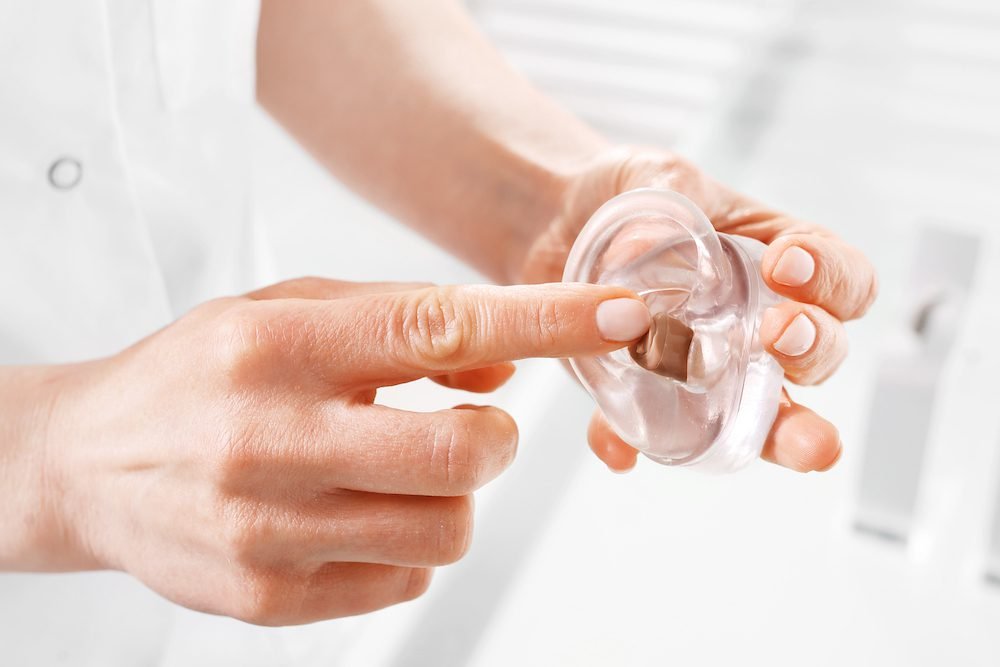Troubleshooting Your Hearing Aid Problems

If you have hearing loss, your hearing aids likely play a crucial role in your day-to-day activities. However, like all advanced technological devices, hearing aids can also suffer issues that require repairs. Depending on the severity of your issue, there may be some troubleshooting steps you can follow that will fix your hearing aid without much work. Let's have look at the most common issues and which hearing aid repairs may be extensive enough to require an audiologist.
The hearing aid appears to be “dead”
One of the most common faults of the hearing aid not working is that the battery seems to be dead. If your hearing aid seems to have stopped working altogether, the first port of call would be to change the battery. Depending on the hearing aid, the battery may be particularly pesky to change. As many hearing aid models are very small these days, this means the batteries are even smaller. If the hearing aid has had the battery replaced but is still not working, this could be down to a problem with the receiver tube. As earwax can build up over time and congregate in the receiver tube, and you're not as up-to-date in cleaning your device as you should, try the best you can to remove any blockage from the hearing aid and clean it properly. The vast majority of hearing aids come with a cleaning kit, so be sure to do this on a regular basis.
The volume isn't loud enough
It's in the name; the hearing aid should be loud enough so you don't have to strain to understand anyone when they're talking to you. But if you find that over time the hearing aid has become quieter, you should check to see if there are any blockages in the receiver tube due to earwax build-up. If so, using the hearing aid cleaning kit will help. On the other hand, if the sounds are loud enough despite regular cleaning, it might not be down to the hearing aid at all. The problem could actually be with your hearing abilities. If you are getting older, your hearing ability can decrease. If this is the case, it's important to schedule an appointment with an audiologist to have your hearing retested as soon as possible, just to rule it out. If they discover that your hearing has deteriorated, they could recommend a new hearing aid or make adjustments to your current one.
The hearing aid varies in sound performance quality
The battery can be the culprit if the sound quality of the hearing aid appears to be up one day and down the next. If your hearing seems to be normal one day, and significantly worse the next this is likely due to the battery nearing the end of its life. Replacing the hearing aid battery should get rid of this issue. On the other hand, you may find that the volume is turned all the way down, especially if you have manual control, or it's been switched to a different program. It is always worth checking these as well.
It sounds unclear or distorted
Having a hearing aid means that you shouldn't have to strain to hear people properly. If common everyday noises start to sound distorted or unclear, and you've cleaned the receiver tube, it could very well be that the battery has given up the ghost. It might not be that the battery has died in the natural sense, but there could be another issue with the battery, such as the metal prongs that connect with the battery have been corroded. Replace the battery, and you should find that the sound quality comes back.
When it's not repairable
We have our hearing aids on us all day, every day. It’s only natural that they can be subject to damage. We can try to make the basic fixes ourselves, but if the hearing aid has been damaged beyond repair, it may require the help of your audiologist. Your audiologist will evaluate your device and let you know if repairs can be made in office, by the manufacturer or if a new hearing aid is needed. This also gives you the opportunity to discuss the latest technology and features that can benefit your life, especially if you've had the same hearing aid for years.
As hearing aid technology has improved so much in recent years, there's no need to be left behind. You can try to fix the problem yourself, but if you've got any issues with your hearing aids, you can contact Adirondack Audiology at (800) 273-9536.
Read our latest blogs
A lot of people have no idea how to clean their ears. If you think that your ear is filled with wax or clogged up, you might think about reaching for something to get rid of the issue. This could be a small piece of tissue, a pen lid or anything pointy to shovel it out.
A lot of people have no idea how to clean their ears. If you think that your ear is filled with wax or clogged up, you might think about reaching for something to get rid of the issue. This could be a small piece of tissue, a pen lid or anything pointy to shovel it out.
A lot of people have no idea how to clean their ears. If you think that your ear is filled with wax or clogged up, you might think about reaching for something to get rid of the issue. This could be a small piece of tissue, a pen lid or anything pointy to shovel it out.
A lot of people have no idea how to clean their ears. If you think that your ear is filled with wax or clogged up, you might think about reaching for something to get rid of the issue. This could be a small piece of tissue, a pen lid or anything pointy to shovel it out.
A lot of people have no idea how to clean their ears. If you think that your ear is filled with wax or clogged up, you might think about reaching for something to get rid of the issue. This could be a small piece of tissue, a pen lid or anything pointy to shovel it out.
A lot of people have no idea how to clean their ears. If you think that your ear is filled with wax or clogged up, you might think about reaching for something to get rid of the issue. This could be a small piece of tissue, a pen lid or anything pointy to shovel it out.
In most situations, hearing loss is caused by damage to the nerves in your inner ear. If these nerves start to weaken, then it’ll negatively affect your ability to hear.
Like most technology, hearing aids have some problems and malfunctions every now and then. You might find that you need to send your hearing aids off for repairs. It could be something simple, or it might be a little more complicated.
When is a cell phone hearing aid compatible? Fortunately, senior cell phones that do not interfere with hearing aids are clearly marked as such. In the United States, hearing aid compatibility testing is mandatory.
When is a cell phone hearing aid compatible? Fortunately, senior cell phones that do not interfere with hearing aids are clearly marked as such. In the United States, hearing aid compatibility testing is mandatory.
When is a cell phone hearing aid compatible? Fortunately, senior cell phones that do not interfere with hearing aids are clearly marked as such. In the United States, hearing aid compatibility testing is mandatory.
When is a cell phone hearing aid compatible? Fortunately, senior cell phones that do not interfere with hearing aids are clearly marked as such. In the United States, hearing aid compatibility testing is mandatory.
When is a cell phone hearing aid compatible? Fortunately, senior cell phones that do not interfere with hearing aids are clearly marked as such. In the United States, hearing aid compatibility testing is mandatory.
If you’re going to see an audiologist for the first time, you may be wondering what to expect. You may be slightly nervous, or you might be excited about the prospect of finding out more about hearing aids. If you’ve got your first appointment coming up, here are four things you can expect.
Anyone that has encountered signs of tinnitus will know that the condition can be very irritating. Severe cases can even feel debilitating, forcing you to stay in bed due to problems with your balance and hearing.
A hearing test provides a measurement of the sensitivity of a person’s hearing across the full range of speech. The test will measure the quietest sound that can be heard several points across the speech range. This hearing test is termed an audiogram and will be performed by an audiologist.
If you believe you may be experiencing hearing loss, then attending a hearing aid evaluation can be the first step towards accessing treatment.
Hearing loss comes in different shapes and forms. For people who are experiencing hearing loss for the first time, it’s hard to tell whether they are dealing with severe or mild hearing loss without running a hearing test.
Millions of people in the United States wear hearing aids, and for many, it is a life-changing experience. However, for some, wearing a hearing aid can be difficult because the aid does not fit properly. If you are having trouble with your hearing aid, you may need to get a new one.
Your hearing aids will require cleaning like anything else you use regularly. Quality hearing aid cleaning will provide years of reliable and better hearing.
It’s a question that often comes up for people who are new to hearing aids – how long do they last? The answer, of course, depends on a number of factors, such as the make and model of hearing aid, how well they’re taken care of and how often they’re used.
Most people take their hearing for granted until they experience a hearing loss. Your hearing health depends on many things, such as the health of your ears, your ability to understand speech and how well you adapt to changes in your hearing.
Make hearing aid repairs simple with our essential guide. Learn how to avoid frequent issues and extend the life of your hearing aids with easy maintenance practices.
Get a detailed overview of the hearing aid fitting process, including what happens during your appointment and how to choose the right device for your needs.
Discover the 4 key steps of a successful hearing aid evaluation and what to expect during your hearing aid test to ensure the best hearing solution for you.
Hearing loss is a significant cause of social isolation, which can make you vulnerable to developing depression and even dementia. If you are experiencing hearing loss to any degree, you need to consider corrective devices such as hearing aids to improve your lifestyle and maintain your communication. Beware, however, that investing in hearing correction is a commitment not to take lightly.
When it comes to hearing protection, earplugs are one of the most popular options. Offering the ability to comprehensively block sound and preserve hearing health, along with easy portability, it is no surprise that earplugs enjoy such prominence. But to enjoy these benefits, it is important to find the right kind of earplugs for you.
Discover safe and effective ways to remove ear wax with manual techniques and irrigation methods. Learn how to care for your ears and prevent buildup.
People tend to clean their ears by themselves with items they can find at home. This may include little picks, it could include cotton swabs or it might even just be their finger.
So, you’re thinking about hearing aids in comparison to cochlear implants and want to get more information on both? Although your audiologist is the best person to consult with regards to this, we’re going to delve into this topic in today’s blog post.
















